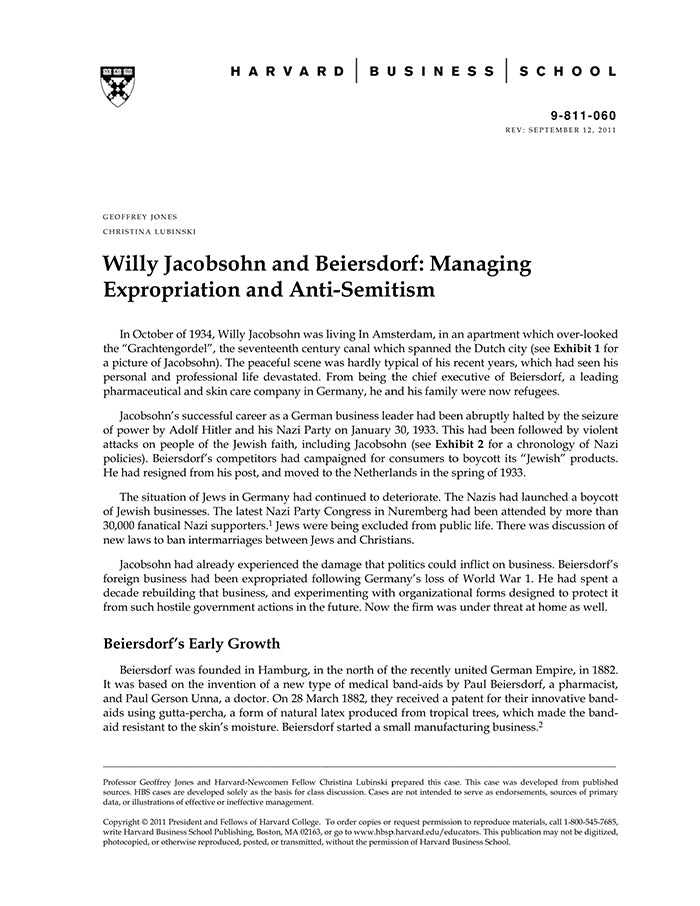Willy Jacobsohn and Beiersdorf: Managing Expropriation and Anti-Semitism
受取状況を読み込めませんでした
This case examines the management of home and host country risk by Beiersdorf during the interwar years. It can be used both in business history courses and more generally to teach political risk management by multinational corporations. Beiersdorf, a German personal products company, expanded globally before 1914, but had its foreign factories and intellectual property expropriated during World War 1. After 1919 ceo Willy Jacobson rebuilt the international business, and sought to protect it by "cloaking" the ultimate ownership. Following the appointment of Adolf Hitler, as German Chancellor in 1933, Beiersdorf and Jacobson personally also came under attack by the anti-Semitic Nazi regime in its home country. The case can be used as a vehicle to understand the rise of both host and home country risk by companies during the interwar years, and more generally to explore the strategies which firms can follow to attempt to manage such risks.
【書誌情報】
ページ数:25ページ
サイズ:A4
商品番号:HBSP-811060
発行日:2011/4/19
登録日:2011/10/5


